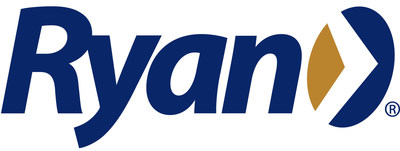|
22.08.2018 23:16:00
|
Oregon Supreme Court Upholds Corporate Income Tax Assessment on Out-of-State Capital One Affiliate Banks
DALLAS, Aug. 22, 2018 /PRNewswire/ -- In Capital One Auto Finance Inc. v. Department of Revenue,1 the Oregon Supreme Court upheld the Tax Court decision that determined that two out-of-state affiliate banks were subject to corporate income tax in the state for years 2006 through 2008. Capital One Auto Finance Inc. ("Capital One"), a Texas corporation, filed a consolidated Oregon corporate excise tax return in a group that included two affiliated banks, Capital One Bank and Capital One FSB ("the banks"), both located in Virginia. Neither bank had any property, office, or employees in Oregon nor did either apply for the authority to do business in the state. The banks' activities of offering credit card products and consumer loans were all conducted from their offices outside of Oregon. Having no physical presence in the state, Capital One concluded that the entities were not subject to the corporate excise tax or the corporate income tax. Consequently, the income earned by the banks from the sale of consumer finance products was not included in the calculation of the sales apportionment factor to determine the percentage of income subject to tax in the state.
The Department of Revenue ("the Department") asserted that the banks derived income from the state through finance charges, late fees, and over-the-limit fees charged to residents in the amount of $150 million per year. The taxpayer contended that the banks did not have any "income from sources derived from within this state" because they lacked physical presence. In addition, the taxpayer maintained that the Department could not raise the issue of corporate income tax for the first time in Tax Court.
The decision of the Oregon Supreme Court affirmed the Tax Court on both issues. Oregon statutes state in part: "Income from sources within this state includes income from tangible and intangible property located or having a situs in this state and income from any activities carried on in this state, regardless of whether carried on in intrastate, interstate or foreign commerce . . . ."2 Only the source of the income needs to be located within the state, not the taxpayer, according to the Court's interpretation of the statute. On the matter of the second issue, the Court maintained that the Department timely raised the corporate tax issue, citing the following statute: "In an appeal to the Oregon Tax Court from an assessment made under ORS 305.265, the tax court has jurisdiction to determine the correct amount of deficiency, even if the amount so determined is greater or less than the amount of the assessment determined by the Department of Revenue, and even if determined upon grounds other or different from those asserted by the department, provided that claim for such additional tax on other or different grounds is asserted by the department before or at the hearing or any rehearing of the case before the tax court . . . ."3 (Emphasis added.) The conclusion of the Court was that the corporate income tax issue constituted "other or different from those asserted by the department" and that the department had timely raised it "before or at the hearing . . . of the case before the tax court."
This decision is quite timely in light of the recent U.S. Supreme Court decision in South Dakota v.Wayfair.4 While the tax years at issue were well before the Wayfair decision was rendered and the case was presented and argued on May 7, 2018, the decision echoes fears of the tax community, resulting from Wayfair, that states are reaching far outside their borders for tax revenue. In fact, a similarly situated taxpayer, Wells Fargo, announced on July 13, 2018, that it had incurred a $481,000,000 expense in the second quarter for expected income tax expenses related to the Wayfair decision. Perhaps Wells Fargo has prognosticative powers, predicting the outcome in this Oregon case.
1 SC S64803.
2 ORS 318.020(2).
3 ORS 305.575.
4 138 S. Ct. 2080 (2018).
About Ryan
Ryan, an award-winning global tax services and software provider, is the largest Firm in the world dedicated exclusively to business taxes. With global headquarters in Dallas, Texas, the Firm provides an integrated suite of federal, state, local, and international tax services on a multi-jurisdictional basis, including tax recovery, consulting, advocacy, compliance, and technology services. Ryan is a six-time recipient of the International Service Excellence Award from the Customer Service Institute of America (CSIA) for its commitment to world-class client service. Empowered by the dynamic myRyan work environment, which is widely recognized as the most innovative in the tax services industry, Ryan's multi-disciplinary team of more than 2,200 professionals and associates serves over 14,000 clients in more than 50 countries, including many of the world's most prominent Global 5000 companies. More information about Ryan can be found at ryan.com. "Ryan" and "Firm" refer to the global organizational network and may refer to one or more of the member firms of Ryan International, each of which is a separate legal entity.

TECHNICAL INFORMATION CONTACTS:
Mark Nachbar
Principal
Ryan
630.515.0477
mark.nachbar@ryan.com
Mary Bernard
Director
Ryan
401.272.3363
mary.bernard@ryan.com
![]() View original content with multimedia:http://www.prnewswire.com/news-releases/oregon-supreme-court-upholds-corporate-income-tax-assessment-on-out-of-state-capital-one-affiliate-banks-300701248.html
View original content with multimedia:http://www.prnewswire.com/news-releases/oregon-supreme-court-upholds-corporate-income-tax-assessment-on-out-of-state-capital-one-affiliate-banks-300701248.html
SOURCE Ryan
 Der finanzen.at Ratgeber für Aktien!
Der finanzen.at Ratgeber für Aktien!
Wenn Sie mehr über das Thema Aktien erfahren wollen, finden Sie in unserem Ratgeber viele interessante Artikel dazu!
Jetzt informieren!